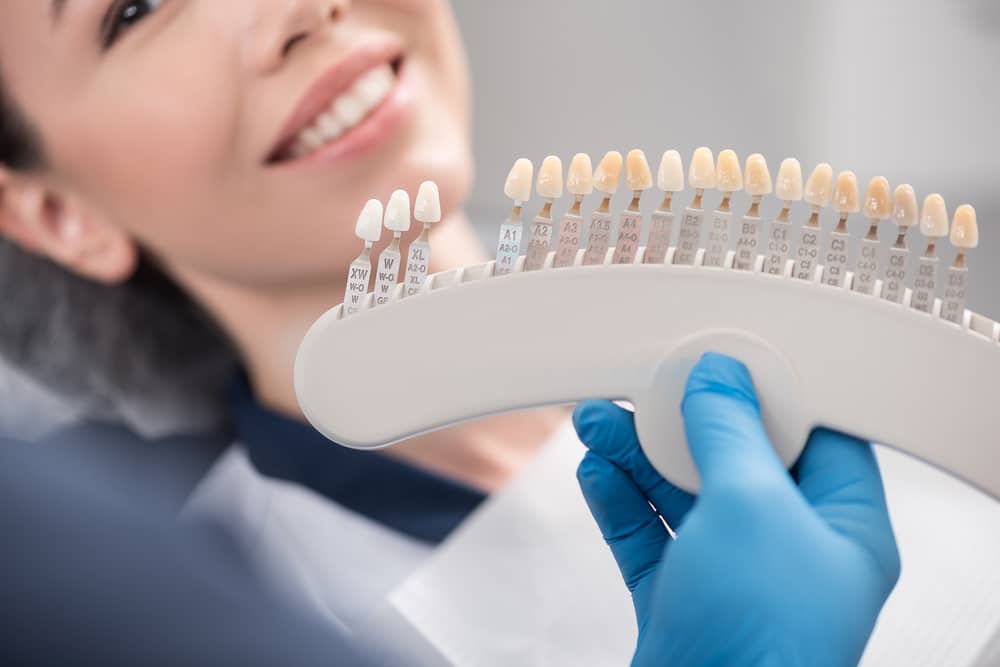There’s nothing like a refreshing drink to quench your thirst. But it’s also important to know if that drink you’re enjoying will be good for your teeth or not. And while you may think you know which drinks aren’t the best for your teeth, you may be surprised to find how common beverages can negatively affect your dental health.
When it comes to how drinks affect your teeth, there are two important factors to consider: acidity and sugar content. If a drink is highly acidic, it can be hard on your enamel, resulting in discoloration and sensitive teeth. Enamel erosion begins at a pH of 5.5 or lower, and sugar promotes bacterial growth, which leads to plaque buildup and eventually tooth decay.
Drinks to Avoid to Keep Your Teeth Healthy
Americans consume 22 grams of sugar each day, more than twice the amount recommended by the American Heart Association. Much of this sugar can be found in the beverages we drink. Here are some of the top drinks to avoid for better dental health.
- Soda: This common beverage is a double whammy when it comes to being harmful to teeth. Not only do most sodas contain tons of sugar, but they are also very acidic. Plus, many sodas contain colorful dyes that stain your teeth. Before you reach for carbonated water, like LaCroix, as a healthy substitute, keep in mind that the acidity in these drinks can still damage your enamel.
- Energy drinks: While the dangers of the high levels of caffeine in energy drinks like Red Bull and Monster are well-known, the damage they can do to our teeth is not as well-publicized. One serving of Monster contains 27 grams of sugar, equal to almost seven teaspoons of sugar. Red Bull offers a sugar-free version, but it still has a pH of 3.39, which is still harmful to your teeth. A study published in Gen Dent showed that exposing teeth to energy drinks four times a day for 15 minutes caused permanent enamel loss.
- Fruit juice: People are often shocked to learn that their favorite fruit juices contain high amounts of sugar, sometimes as much as 10 teaspoons a day, rivaling the sugar content in many popular sodas. This, along with the high acidity can cause tooth decay.
- Sports drinks: Sports drink companies use fit, muscular athletes to advertise their products, but what they don’t advertise is the amount of sugar they contain. A 32-ounce bottle often has 56 to 76 grams of sugar, which equals 14 to 19 teaspoons, and the pH level of a typical sports drink is around 2.9.
- Bottled water: The brand of bottled water you buy makes a surprisingly big difference when it comes to acidity. Common brands like Dasani and Aquafina are actually acidic enough to be harmful to your teeth. Look for bottled water with a pH level between 7 and 9. Some of the best brands include Essentia, Evian, and Fiji.
Healthy Drinks for Your Teeth
If you’re looking for some refreshment and want to keep your teeth healthy, you have no shortage of options. These beverages will quench your thirst and keep your teeth looking and feeling great!
- Water: Water is truly the only beverage your body needs to survive, so the more water you drink, the better. Filtered tap water and bottled water with a healthy pH level will pose no problems for your teeth. Plus, staying hydrated allows you to produce healthy amounts of saliva. Tap water containing fluoride, which is fairly common today, has the added benefit of strengthening the enamel of your teeth.
- Milk: Absent of any staining agents and filled with healthy minerals like calcium, phosphorus, and Vitamin D, milk can help keep your teeth healthy. It also contains a protein called casein, which can actually protect your enamel against tooth decay. However, because of the natural sugars found in milk (lactose), it is important that milk isn’t left on the teeth too long. If your child wants some milk before bed, be sure to have them brush after they drink it, and leave water for them to drink throughout the night instead.
- Vegetable Juice: Obviously it won’t be as sweet as fruit juice, but you can find creative ways to make healthy vegetable juice more refreshing, such as adding mint leaves, or selecting those with just a touch of apple or carrot juice. A vegetable smoothie with spinach or kale provides vitamin B, which is important for gum health, and calcium, which is good for your enamel.
- Tea: While you’ll want to avoid black teas that can stain your teeth, many herbal teas, especially white and green tea, may help fight cavities and gum inflammation because they contain fluoride and polyphenols, along with many other antioxidants. For the best health benefits, unsweetened or sugar-free tea is the way to go. Kombucha, which is made with tea and is often considered healthy because of its probiotic and antioxidant levels, is frequently filled with sugar, so be sure to check the nutrition info before purchasing.
- Coconut Water: A tasty and refreshing alternative to fruit juice, coconut water (with no added sugar!) is both nutrient-dense and low in acidity, making it a great option for dental health.
To keep your teeth healthy and get more tips on proper oral care, schedule an appointment at Holy City Dentistry today!


